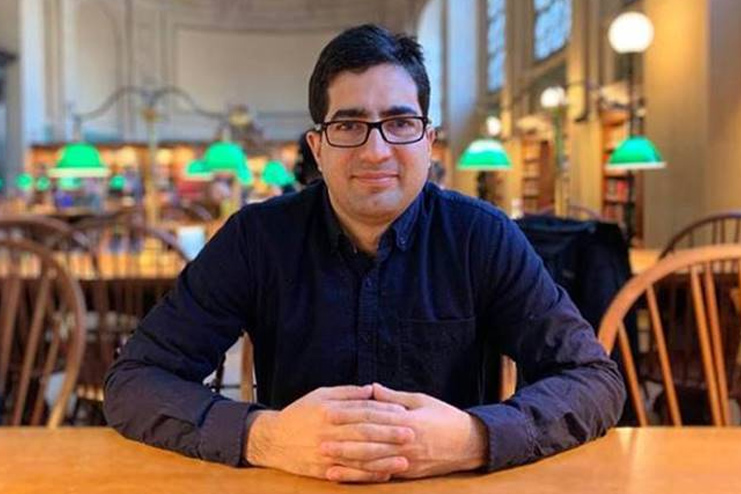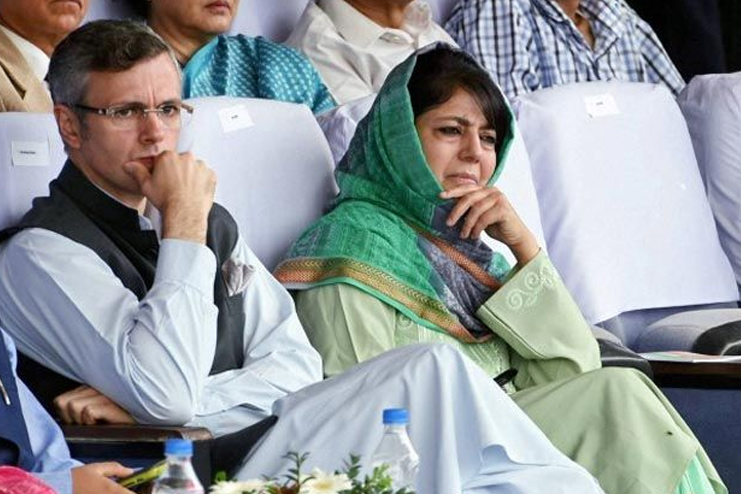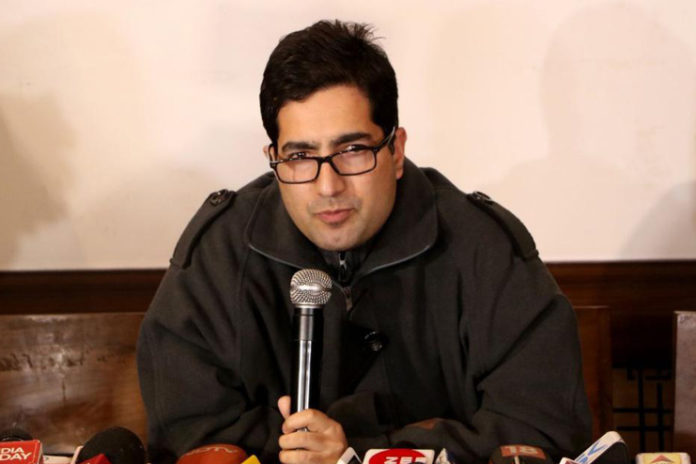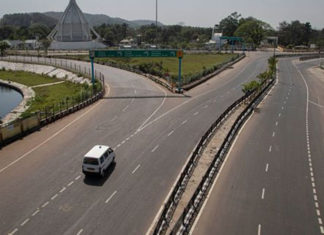As many as 124 students, faculty, alumni, and affiliates of the Harvard University on Thursday called on the Indian government to release the detained Kashmir-based alumnus of the university and other leaders, including former civil servant-turned-politician Shah Faesal.
125 Harvard faculty & alum have written to Modi ji seeking #ShahFaesal‘s release. This is how respected he is. He’s a Fulbright scholar there. This guy could’ve made a good career abroad ages ago but decided to serve Kashmiris and Indians. Silly, no?https://t.co/jacJHoPWDS
— Chirpy Says (@IndianPrism) August 15, 2019
“We urge the Government to release Shah Faesal and other local leaders. We request the government to take credible action keeping in mind the democratic rights of people during the process of bringing peace to the Valley,” the statement read.
The statement also appealed for “democratic and peaceful means to ensure stability in the state of Jammu and Kashmir.”
Faesal was detained at Delhi’s Indira Gandhi International Airport on 14 August under the Public Safety Act and sent back to Kashmir on the same day. The next day, he was reportedly taken to a makeshift detention center at the Centaur Hotel in Srinagar.

Apart from Faesal, former Jammu and Kashmir chief ministers Mehbooba Mufti and Omar Abdullah were also put under house arrest, a day prior to the Indian government’s announcement to revoke Article 370, which provided autonomy and certain special rights to the state of Jammu and Kashmir.

Faesal made controversial remarks on the situation in Jammu and Kashmir since the revoke of Article 370 and the security clampdown. He had called the Indian government’s move “daylight robbery” and “greatest betrayal” for the people of Kashmir.
He took to Twitter to express his anger and said, “Kashmir will need a long, sustained, non-violent political mass movement for restoration of the political rights. Abolition of Article 370 has finished the mainstream. Constitutionalists are gone. So you can either be a stooge or a separatist now. No shades of grey.”
Kashmir will need a long, sustained, non-violent political mass movement for restoration of the political rights.
Abolition of Article 370 has finished the mainstream.
Constitutionalists are gone.So you can either be a stooge or a separatist now.
No shades of grey.
— Shah Faesal (@shahfaesal) August 13, 2019
Besides, in several media interviews, Faesal strongly condemned the ‘undemocratic’ manner in which the new setup was imposed on a state. “Agar hampar ahsan kar rahe ho, to humse pooch to lete pehle (If you are doing us a favor, then at least you could have asked us whether we want it or not),” Faesal told journalist Barkha Dutt in an interview when asked about the much-touted ‘benefits’ of Article 370.
Faesal was a bright student since the early years. He first caught the attention when he attended the medical entrance exam a day after his father was killed by militants in Kashmir and managed to secure a seat by clearing the highly competitive exam in 2002. He is also a qualified doctor and has an additional master’s degree in Urdu. Nine years later, he again drew attention after he topped the IAS examination and became the first from Kashmir Valley to do so.
“His success motivated hundreds of local aspirants to compete in the Union Public Service Commission examinations, an effort that resulted in a quantum jump in the number of students appearing from the Valley. With his speeches and interviews, widely televised on Doordarshan, he emerged as a poster boy from the troubled Valley. His story of success became a counter-narrative to the discourse of alienation that was driving youth to militancy and street protests,” according to The Hindu.
In March 2019, Faesal resigned from the Indian Administrative Service and floated the Jammu and Kashmir People’s Movement (JKPM) party to “influence policy decisions” in a larger way.
Faesal, who had topped IAS examination in 2010 ultimately quit the service in January 2019, to join politics. Hundreds of his supporters thronged the launch venue in Srinagar’s Rajbagh chanting the party slogan: “Ab Hawah Badlegi” (Now winds will change directions).













































